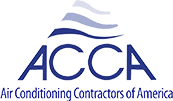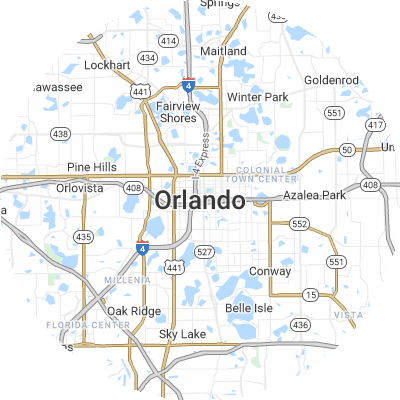Give us a call now for an immediate match with a local pro.
Click to Call(833) 824-3371(833) 824-3371
Last Updated: February 25, 2025
According to the U.S. Department of Energy, about 55% of energy use in American homes goes toward heating and cooling. Energy costs in Orlando are often higher than in other places, which means you'd probably like to save money on your bill.
The right HVAC contractor can get your system into shape for a reasonable price, letting you keep your home comfortable while still saving money. That's why we've assembled this guide to the top HVAC companies in Orlando.

Our Rating
User Rating
Reliable customer support
Clear pricing policy
Free quotes
Prompt service delivery
Informative resources
Services Offered

Our Rating
User Rating
Informative resources
Reliable customer support
Clear pricing policy
Prompt service delivery
Free quotes
Services Offered

Our Rating
User Rating
Reliable customer support
Informative resources
Clear pricing policy
Prompt service delivery
Free quotes
Services Offered

Our Rating
User Rating
Reliable customer support
Clear pricing policy
Informative resources
Services Offered

Our Rating
User Rating
Informative resources
Clear pricing policy
Prompt service delivery
Free quotes
Reliable customer support
Services Offered

Our Rating
User Rating
Free quotes
Prompt service delivery
Clear pricing policy
Informative resources
Reliable customer support
Services Offered

Our Rating
User Rating
Informative resources
Free quotes
Prompt service delivery
Clear pricing policy
Reliable customer support
Services Offered

Our Rating
User Rating
Free quotes
Prompt service delivery
Informative resources
Clear pricing policy
Reliable customer support
Services Offered

Our Rating
User Rating
Prompt service delivery
Clear pricing policy
Free quote
Informative resources
Services Offered

Our Rating
User Rating
Free quotes
Reliable customer support
Informative resources
Services Offered
Today's Homeowner looks at dozens of datapoints on hvac companies to come up with our data-driven rankings. It's not possible for a company to pay for preferential treatment in our rankings. We look at the following key factors in determining who should top our list:
An HVAC system that's not working properly or outdated likely needs professional attention for maintenance or replacement. Watch for these signals that your system needs service:
If you're experiencing any of these HVAC issues, we recommend having a technician inspect your system. A local professional can detect problems and let you know whether whether fixing or replacing your HVAC unit is the correct solution.
HVAC installation or maintenance costs vary depending on your system. Common HVAC unit varieties include the following:
HVAC expenses vary based on the work needed. HVAC systems are complicated and may need multiple types of maintenance. Prices for common jobs are as follows:
| HVAC Unit Type | Cost | |
|---|---|---|
| Split | $1,842-$4,697 | |
| Hybrid Split | $3,733-$6,878 | |
| Heat Pump | $2,891-$29,455 | |
| Packaged Heating and Air | $242-$403 |
It's important to fix or swap out your HVAC components when they become damaged, but it can also be expensive. Fortunately, there are steps you can take to slow the wear and tear on your system.
| Service | Cost | |
|---|---|---|
| Filter Replacement | $60-$161 | |
| Condensor Cleaning | $1,209-$3,628 | |
| Thermostat Repair | $81-$202 | |
| Ductwork Cleaning | $387-$968 |
Finding the right HVAC company is key for a successful installation or repair. An experienced, credentialed HVAC contractor gives you confidence your system can provide reliable heating and air conditioning year-round.
Contact at least three HVAC companies for quotes. Explain the issues and have technicians visit to inspect your HVAC system if possible. Compare the companies' explanations, solutions, estimated costs, warranties, and timeframes. Avoid companies that pressure you or demand payment upfront.
When selecting an HVAC provider, choose one with technicians that have the appropriate training, licenses, and experience. HVAC contractors in all states must obtain a Section 608 Technician Certification from the Environmental Protection Agency (EPA). This certification is required for all contractors who "maintain, service, repair or dispose of equipment that could release refrigerants into the atmosphere." An individual must pass an exam (the type of exam depends on what kind of equipment they intend to work with) to be certified by the EPA. All other licensing requirements are handled on a state-by-state basis.
HVAC contractors in Florida must be certified or registered with the Department of Business and Professional Regulation. Certified HVAC contractors need to have four years of experience, pass an exam, and carry HVAC business insurance. Registered HVAC contractors may only work in one specific city, and the local government determines licensing requirements. Also look at a company's reviews and complaints on sites such as Google Reviews, the Better Business Bureau (BBB), and Yelp. Pick a company with positive feedback and good customer testimonials.
Make sure you know the details of any project before it begins. When getting HVAC repairs, have your provider list which parts need replacement and why. Get confirmation that your technician will clean and test your system after the repair to verify that everything works. When replacing your HVAC system, ask your installation company to provide details on the new model, features, energy efficiency, estimated installation time, and brand. Before signing a contract, make sure you understand the process your provider will use to select the correctly sized system for your home and what the cost will be.
Reputable HVAC companies back their services with warranties. Compare warranties from different companies, keeping in mind that more comprehensive coverage is better. Look for the company that offers the most coverage for a reasonable price.
Always get HVAC estimates in writing before work begins. A thorough quote will cover costs for both materials and labor. Confirm that you agree to all terms before signing the contract.
Generally, your HVAC system should be inspected twice a year. After that inspection, your HVAC technician will tell you what, if any, services are required. You should also have an inspection if you notice any new issues, like leaks, unusual smells, or strange noises. If you have ductwork in your home, it should be serviced every few years.
The best times to have your HVAC system inspected are during the spring and fall. Technicians are generally less busy during these times, which makes it easier to get an appointment. This also helps get your system ready for the summer and winter, which is when it normally gets the most use.
You can save energy during the summer by making it easier for your HVAC system to keep your home cool. Keep your thermostat temperature as close to the outside temperature as you comfortably can, and avoid making drastic changes in temperature all at once. Keep your roof in good shape and seal any leaks around your doors and windows to avoid letting cool air escape. Similarly, ensure that your attic is well ventilated to avoid trapping excess heat in your home.
Generally, whole-system HVAC installation or replacement takes one to three days. Installing or replacing an air conditioning unit or a furnace may take anywhere from a few hours up to two days. The exact amount of time will depend on things like how large your home is, how easily accessible different parts of the system are, and whether your technician runs into any problems.
For a 2,000-square-foot home, you should look for a furnace that's between 50,000 and 80,000 BTUs (British thermal units). In Orlando, you may be able to make do with a lower-capacity furnace.
For a 2,000-square-foot home, you'll also want an air conditioning unit with around 2.5 to 5 tons of capacity. In Orlando, you'll likely look for something on the higher end of this range. Generally, if your home is larger than 1,000 square feet, central air will be more effective than window air conditioning units.
Your HVAC company might provide financing options through a third-party lender, or you might choose to obtain a loan on your own. It's smart to discuss payment options with your HVAC company and a financial advisor to make sure that you find the best option for you.
There are a number of ways you can make your HVAC system more energy-efficient:
